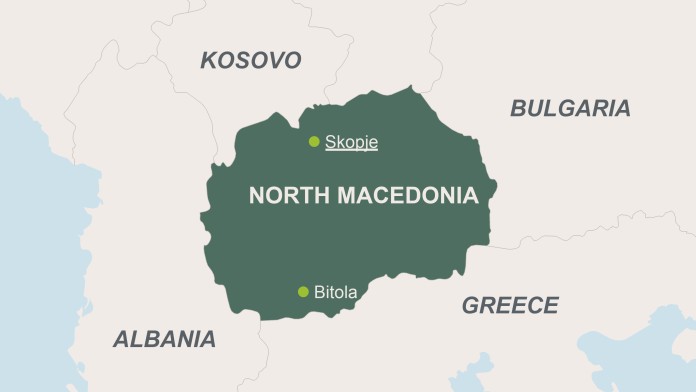
In the former Yugoslavia, North Macedonia (formerly Macedonia) was the least economically developed of the six republics. It declared its independence in 1991. In 1992, Germany started the cooperation with the country. Since 1999, KfW Development Bank helped to rebuild the run-down and partially destroyed infrastructure. Following NATO accession in 2020, North Macedonia is now focusing on EU membership by starting the negotiations for EU accession in 2022. KfW is active in the areas affecting the climate changes and with a particular focus on energy efficiency and renewable energies, irrigation and climate-resilient agriculture, municipal infrastructure (district heating) and vocational training to create employment opportunities.
KfW Development Bank closely cooperates with North Macedonia in achieving progress in the following fields of development policy:
North Macedonia's energy mix is dominated by coal with hydropower as the main source of renewable energy. Although low in emissions, many of the hydropower plants are outdated and require modernisation. Six hydropower plants have therefore been modernised to significantly increase performance and energy efficiency. Furthermore, on behalf of the German Federal Government, KfW has supported the construction of the first wind farm in North Macedonia and in the Western Balkans.
The government of North Macedonia has the goal to further expanding and diversifying the use of renewable energy sources. KfW is also planning to support the energy transition efforts of the country towards renewable energy generation with new solar PV and wind power capacities in the country.
Furthermore, North Macedonia has set itself the goal of extending modern irrigation systems over the next 15-20 years to irrigate an additional 250,000 ha of land. KfW has been supporting this goal since 2001. The aim is to sustainably increase agricultural production by making water resources more available and more efficient. This will also help to improve living conditions for rural populations. Help is also being provided to increase employment and make agriculture resilient to climate change. For North Macedonia, the positive developments in agriculture also mean important progress in convergence with the European Union. The project focuses on the Vardar river basin.
Especially in the fields of renewable energies and agriculture, the country has improved sustainably due to the cooperation.
KfW Office Skopje
Director KfW Office: Moritz Remé
Antonie Grubisik 5
1000 Skopje
Macedonia
+38 923 10 92 41
Fax: +38 923 21 24 66